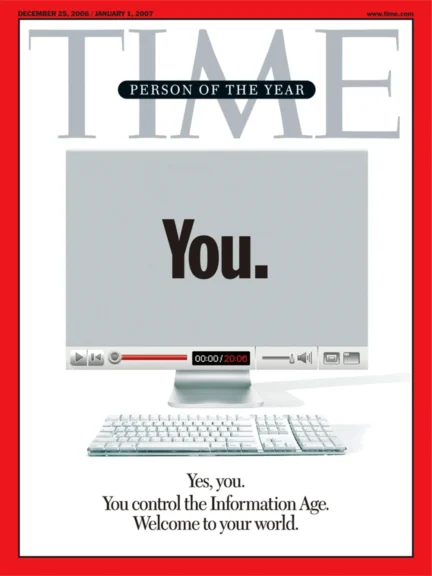Welcome to the age of epistemic solipsism.
Epistemic solipsism explores how social media algorithms, echo chambers, and digital narcissism have fostered a culture where individuals treat their personal beliefs as self-evident truths.
Drawing on McLuhan, Morozov, Frankfurt, and earlier critiques of influencer mimicry and post-truth phenomena, I argue that we’ve entered an era in which epistemology is no longer communal but performative, tribal, and dangerously self-reinforcing.
Here we go:
The Age of Epistemic Solipsism
In an age increasingly defined by data deluge, algorithmic curation, and performative identity, a peculiar condition has begun to metastasise online:
I call this phenomenon epistemic solipsism.
Epistemic = relates to knowledge or the conditions for acquiring, justifying, and evaluating truth or belief.
Solipsism = the philosophical idea that only one’s own mind is sure to exist and that knowledge of anything outside the self is ultimately unknowable.
This is not classical solipsism — the metaphysical notion that only one’s mind can be known to exist. Epistemic solipsism is the intellectual offspring of post-truth culture, amplified by social media logic. It suggests, simply and dangerously: “If I believe it, and if enough people like me also believe it, then it must be true.”
Today, we no longer ask, “What is true?” but rather, “What is true for me?” And increasingly, that answer is pre-fed by opaque algorithms that know our predilections better than we know our own contradictions.
The Feedback Loop of Selective Information
Traditional epistemology concerns itself with justified belief and truth. But in today’s media landscape, justification has been outsourced to engagement metrics, and the truth is now filtered through what Evgeny Morozov once called technological solutionism—the notion that all human problems can be solved with more tech, data, and code. 1Morozov, E. (2013). To save everything, click here: The folly of technological solutionism. PublicAffairs.
The epistemic subject — the knower—has become detached from the world and reattached to a simulacrum: a reality increasingly built from reflections of itself. The selfie is no longer just a photo but a philosophy of being.
In earlier writings, I’ve referred to the selfie generation as one obsessed with curating its perception to the point of delusion. Epistemic solipsism is that feedback loop of belief, image, and selective information. 2Silfwer, J. (2019, March 2). The Selfie Generation | The Epidemic of Online Narcissism. Doctor Spin | The PR Blog. https://doctorspin.net/selfie-generation/
Filter Bubbles in the Electronic Age
Eli Pariser’s term filter bubble now feels quaint. Initially coined to warn us about personalised search results, it describes our entire informational ecosystem. 3Pariser, E. (2011). The filter bubble: What the Internet is hiding from you. Penguin Press.
Social media algorithms have evolved from content curation tools to schemas for epistemic engineering. Their logic is not to broaden your understanding but to reinforce your pre-existing worldview, because reinforcement drives engagement, engagement drives ad exposure, and ad exposure drives profit.
With prophetic brilliance, McLuhan foresaw this in his notion of The Electronic Age. He argued that the “global village” created by electronic media would not be a utopia but rather a return to tribalism and conflict — a kind of doxological warfare. 4Silfwer, J. (2024, May 3). The Electronic Age and The End of the Gutenberg Galaxy. Doctor Spin | The PR Blog. https://doctorspin.net/electronic-age/ 5McLuhan, M. (1964). Understanding media: The extensions of man. McGraw-Hill.
Indeed, we are now each the centre of our own village, each with our own gods and myths fed to us by algorithmic machines designed to extend the reign of ad-serving capitalism.
Echo Chambers as Epistemic Wombs
The echo chamber, once a metaphor, is now a metaphysical reality. Inside these tightly sealed domes, opinion hardens into dogma. Dissent is framed not as an alternative view but as an existential threat. Dialogue becomes dangerous, nuanced, and elitist.
The epistemic solipsist thrives here.
They speak only into mirrors.
In a solipsistic media landscape, confirmation bias is not a bug but a feature.
Truth becomes synonymous with identity. To question is to betray. And so we retreat into epistemic wombs — warm, safe, affirming — but fundamentally stillbirths of intellectual discourse.
This explains the birth of fake news from the political right and cancel culture from the political left. It presents not merely as a problem of misinformation but as a crisis of authority. If everyone’s truth is equally valid, then no truth is necessary — only belief.
And belief, in turn, becomes a lifestyle brand.

The Kidult Mind and Mimetic Knowing
I’ve previously critiqued the infantilisation of adulthood, noting how modern media seduces us into juvenile consumption cycles. But epistemic solipsism extends this infantilisation to thought itself. 6Silfwer, J. (2019, March 2). The Selfie Generation | The Epidemic of Online Narcissism. Doctor Spin | The PR Blog. https://doctorspin.net/selfie-generation/
The kidult does not seek truth — they seek comfort and belonging. This is perhaps not a philosophical shortcoming; it might just be a neurological shortcut. Thinking is metabolically expensive, while mimicry is efficient.
Thus, online wannabeism enters — the phenomenon of mimicking influencers in style and posture. To be right is to appear correct. You don’t need to be correct if you can perform certainty with enough flair. 7Silfwer, J. (2021, August 10). Online Wannabeism: Why We Mimic Social Media Influencers. Doctor Spin | The PR Blog. https://doctorspin.net/online-wannabeism/
This performativity, once the domain of brands and ideologues, has become democratised. Each user becomes the no. 1 online influencer to themselves. And like all influencers, they risk becoming preoccupied with an online representation of themselves.
New Architectures for Knowing
What might the counterforce to this solipsism look like?
Ironically, the very medium that amplifies epistemic solipsism—the digital realm—may also be our way out. But it requires rethinking our relationship with technology, truth, and each other.
“We shape our tools, and thereafter, our tools shape us.” 8Quote Origin: We Shape Our Tools, and Thereafter Our Tools Shape Us. (2016, June 27). Quote Investigator. https://quoteinvestigator.com/2016/06/26/shape/
The epistemic solipsist was shaped by tools designed for dopamine, not discernment. To escape, we must design new architectures for knowing — platforms that reward curiosity over certainty, dialogue over diatribe, and exploration over echo.
The alternative is bleak. A society of solipsists cannot cohere, solve global problems, engage in reasoned disagreement, or grow. It can only fragment into increasingly isolated cells of certainty, increasingly hostile to the shared project of civilisation.
The Narcissism of Bullshit Mirrors
Epistemic solipsism is an expression of a broader cultural narcissism. As the philosopher Harry Frankfurt warned, the greatest threat to truth is not the lie but bullshit—the indifference to whether something is true at all. 9Frankfurt, H. G. (2005). On bullshit. Princeton University Press.
We are awash in such indifference. But the antidote is not some grand truth crusade. It is humility. Curiosity. And, perhaps most urgently, the radical act of listening to that which we do not wish to hear.
Until then, we remain trapped in a house of mirrors, mistaking our reflections for reality.
Let us hope we shatter a few.
Learn more: The Age of Epistemic Solipsism

THANKS FOR READING.
Need PR help? Hire me here.

What should you study next?
Spin Academy | Online PR Courses

Spin’s PR School: Free Digital-First Course
Get started with this free Digital-First PR Course and learn essential public relations skills and concepts for future success in the PR industry.
The Electronic Age
Artificial Intelligence
Digital Transformation
Digital Public Relations
Learn more: All Free PR Courses
💡 Subscribe and get a free ebook on how to get better PR.

Annotations
| 1 | Morozov, E. (2013). To save everything, click here: The folly of technological solutionism. PublicAffairs. |
|---|---|
| 2, 6 | Silfwer, J. (2019, March 2). The Selfie Generation | The Epidemic of Online Narcissism. Doctor Spin | The PR Blog. https://doctorspin.net/selfie-generation/ |
| 3 | Pariser, E. (2011). The filter bubble: What the Internet is hiding from you. Penguin Press. |
| 4 | Silfwer, J. (2024, May 3). The Electronic Age and The End of the Gutenberg Galaxy. Doctor Spin | The PR Blog. https://doctorspin.net/electronic-age/ |
| 5 | McLuhan, M. (1964). Understanding media: The extensions of man. McGraw-Hill. |
| 7 | Silfwer, J. (2021, August 10). Online Wannabeism: Why We Mimic Social Media Influencers. Doctor Spin | The PR Blog. https://doctorspin.net/online-wannabeism/ |
| 8 | Quote Origin: We Shape Our Tools, and Thereafter Our Tools Shape Us. (2016, June 27). Quote Investigator. https://quoteinvestigator.com/2016/06/26/shape/ |
| 9 | Frankfurt, H. G. (2005). On bullshit. Princeton University Press. |


